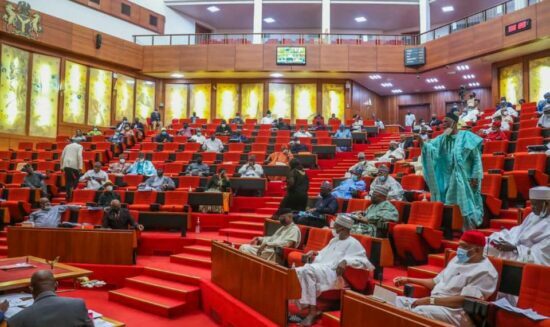
The Senate on Thursday. November 28, 2024, passed the Second Reading of the proposed Tax Reform Bills, a key piece of legislation aimed at overhauling Nigeria’s tax system. While the bills received support from many lawmakers, some raised concerns about insufficient consultations and the timing of the reforms.
Leading the debate, Senate Leader Michael Opeyemi Bamidele described the reforms as “a significant move to overhaul the country’s tax system,” adding that the bills aim to simplify tax administration, reduce burdens on small businesses, and streamline tax collection.
“These bills seek to ensure uniformity in tax revenue administration across Nigeria, eliminate double taxation, encourage private sector investment in critical industries, and boost disposable incomes through targeted tax exemptions,” Bamidele said during the plenary.
Key Proposals in the Bills
Bamidele highlighted several critical components of the bills, including tax exemptions for individuals earning minimum wage or less and small businesses with an annual turnover of ₦50 million or less. Additionally, corporate income tax is proposed to reduce from 30% to 25% by 2026.
To address double taxation, existing levies such as the 2.5% education tax and 0.25% NASENI tax would be harmonized into a single development levy of 2%, earmarked for funding the newly established student loan scheme by 2030.
Another significant innovation is the proposed adjustment to the Value Added Tax (VAT) revenue-sharing formula. Bamidele explained: “Unlike the current regime, where the Federal Government takes the lion’s share, states’ VAT allocation will increase from 15% to 55%, while the Federal Government’s share drops to 10%. Local Governments’ allocation will remain unchanged.”
Additionally, essential items such as food, medical services, pharmaceuticals, education fees, and electricity will remain exempt from VAT.
Support and Concerns
While many lawmakers backed the reforms, some expressed reservations. Former Bayelsa State Governor and Senator Seriake Dickson acknowledged the benefits but flagged insufficient consultation.
“While the lack of stakeholder engagement is regrettable, it should not detract from the essence of this legislation. For instance, the focus on derivation is commendable as it encourages states to boost productivity and revenue generation,” Dickson said.
Senator Ali Ndume of Borno South, however, criticized the timing and questioned the derivation principle included in the VAT proposal. “Introducing derivation in VAT sharing requires constitutional amendments. This process should involve governors, the National Economic Council, and traditional rulers. The bills should be withdrawn and reintroduced after broader consultations,” Ndume argued.
Senator Tahir Monguno countered Ndume’s position, noting that governors and traditional rulers could present their concerns during public hearings.
Next Steps
Following a voice vote, the Senate passed the bills for the Second Reading. Senate President Godswill Akpabio directed the Senate Committee on Finance to review the proposed legislation and report back within six weeks.
As the legislative process continues, the proposed tax reforms are poised to spark further debate among lawmakers, stakeholders, and the public. Advocates see them as a necessary step toward economic growth, while critics demand greater inclusivity and timing considerations.








